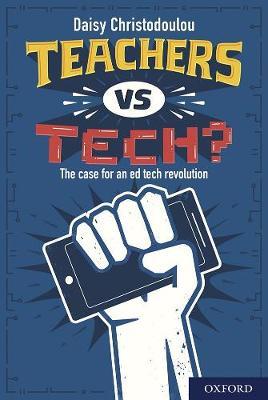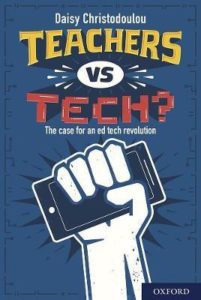

Lack of understanding and misconceptions about how people learn interfere with building technologies that can improve education. One especially important feature of human cognition is that while we have the ability to store vast amounts of information in long-term memory, we can only hold and manipulate a few pieces of information at a time—i.e., we have limited working memory capacity. Too often in-person or technology-based educational tools and techniques are ineffective because they tax our working memory. There is increasing pushback against teaching students facts since students can “just google it.” Christodoulou argues, however, that without sufficient content knowledge students’ working memory capacity would be quickly overwhelmed, they would not be able to understand the things they look up online, and they would easily fall prey to false information. A common misconception about learning is that students have different “learning styles.” This learning myth assumes that, for example, some students learn better with visual information while others learn better with auditory information.
While it is the case that technology could substantially help improve education by personalizing learning, doing so with technology that teaches to different learning styles or lets students guide their own learning based on their interests and assessments of their competency is not effective. Rather, technology could effectively personalize learning by providing targeted feedback and assessments based on students’ objective performance. Good educational technology can break down complex skills into smaller parts, provide helpful examples, and help students practice those skills repeatedly.
Christodoulou warns that a challenge with smart devices is that it is so easy to become distracted from educational work while using such devices. She suggests reducing device use, changing settings to reduce distractions, and potentially moving towards devices designed for a single learning purpose so that there are fewer possible distractions.
Christodoulou suggests that the path forward for EdTech should be to combine teacher expertise, for example in motivating students and evaluating complex ideas, with the ability of tech to do things like scale lectures, engage students in spaced, repetitive practice, and consistently applying rules to make grading fair. Further, teachers should receive training in using new technologies. Before adopting new EdTech, educators should investigate how the technology personalize the learning experience, how it builds long-term memory, how it support attention, and what evidence there is about its efficacy.
Christodoulou wisely concludes that change in education will only be possible when it is grounded in the realities of how people learn and the objectives that society and students have for school, and when it honors the expertise of teachers. Still, she argues that technologies that adapt to students’ performance and provide opportunities to practice challenging component skills provide an example of useful educational technology. In this moment when understanding the possibilities of EdTech is so important, Teachers vs Tech is a helpful read.
Christodoulou, D. (2020). Teachers vs Tech?: The case for an ed tech revolution. Oxford University Press-Children.




